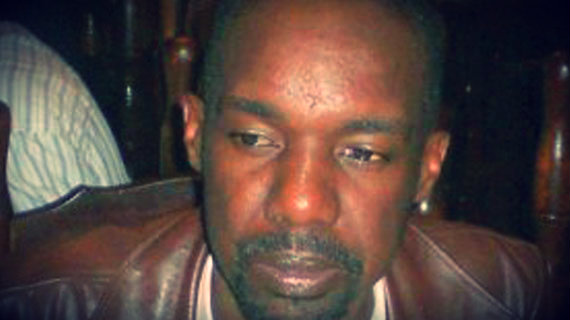
A STORY is told about how the late retired Zimbabwe High Court judge Justice Washington Ega Sansole was arrested by the very government he used to work under, for political reasons.
The Last Straw with Lenox Lizwi Mhlanga
Police officers came to his house in Hillside, Bulawayo, to pick him up, but had no arrest warrant.
He informed them that they could not arrest him without one and they maintained an all-night vigil outside his house “awaiting further instructions” from their superiors.
He was to later tell his lawyer that he slept secure that night with the knowledge that he had free protection from the police.
“I was the safest resident in Hillside that night, with all the break-ins that were taking place. Though, of course, they eventually took me in the very next day,” the jocular Sansole said.
The story does not end there; in the holding cells at Bulawayo Central Police Station, the retired judge was an instant hero among other cellmates.
“Make way for the judge,” or “be quiet, the judge wants to sleep,” could be heard from inmates as they proffered Sansole five-star treatment. They even shared their food with him.
- Chamisa under fire over US$120K donation
- Mavhunga puts DeMbare into Chibuku quarterfinals
- Pension funds bet on Cabora Bassa oilfields
- Councils defy govt fire tender directive
Keep Reading
It was a case of being known that his experience was not that bad.
Being “recognised” had previously produced hilarious results. While strolling in the city centre, he had met a man he had condemned to death row.
“Do you remember me, sir?” the man asked a perplexed Sansole. “No, I don’t,” was his reply. “Sir, I am the man you sentenced to death,” the man said.
“Then what are you doing here?” came the typical reply from the retired judge. I have a confession to make. I was arrested once (honest!) in 1983 and my stint in the cells was an unpleasant one compared to the honourable judge’s.
It was the time of our life when we never missed a music concert. This time around British reggae bands Aswad and King Sounds were to perform at the Trade Fair Grounds. As fate would have it, the Aswad-King Sounds show never took off.
The fact that the two groups arrived late by road did little to dampen spirits, particularly those flowing in our veins.
It was when the sound check took forever that we realised something was wrong. Totally oblivious of the trouble that was slowly brewing around us, we waited for the show to begin.
The public address system was hardly audible and there was a growing murmur of disapproval from the crowd that was growing impatient. Then the announcement came that the show could not go on.
That was when all hell broke loose.
People wanted their refunds, gate crashers included. It was a recipe for disaster. A volley of bottles were launched towards the stage and the next thing we saw were a row of cowering dreads sprinting towards the tour buses.
It was a big mistake.
Soon there was the pop, pop sound as the bus widows gave way to the assault. My friends and I moved out of the line of fire and positioned ourselves where we could witness the free action.
That was big mistake number two. Apparently plainclothes police were observing the chaos and had summoned the dreaded riot police. Unfortunately by the time they arrived, the majority of the fans had streamed out of the arena. This made them livid beyond words.
We all know what happens when vana rovayi (riot police) are angry. They went for anyone in the vicinity who looked suspicious. I was wearing a cap, so I qualified with flying colours.
I was plucked up near the City Hall far from the scene of the crime and thrown into the cells at Bulawayo Central Police Station. I was accused of malicious injury to property or MIP in police jargon.
I was one of only two suspect accused of smashing up the Aswad tour bus. No! I didn’t do it, but tell that to the cops. We were thrown into the cells at Sauerstown Police Station where I spent two forgettable nights with a motley crew of accused persons.
The diet was awful — boiled cabbage and isitshwala hard as cement. This was no hotel. To cut a long story short, I was released from behind bars. No charge, no nothing. What a waste of State resources, I thought.
Stinking of urine, having lost a couple of kilos, prison blankets stuck to my hair like decorations and hosting to a few hundred lice, I took a taxi home.
Though I had enough money to drown a whale, the last thing I wanted was to be caught on the wrong side of the law again.
I arrived home expecting the hiding of my life. My parents were hardly nonplussed, neither did I get the reception of the Biblical prodigal son.
I was later to learn that some other senior police detective relative had pressed a few buttons for my release. Hmmmmm!
l Lenox Mhlanga is a social commentator










